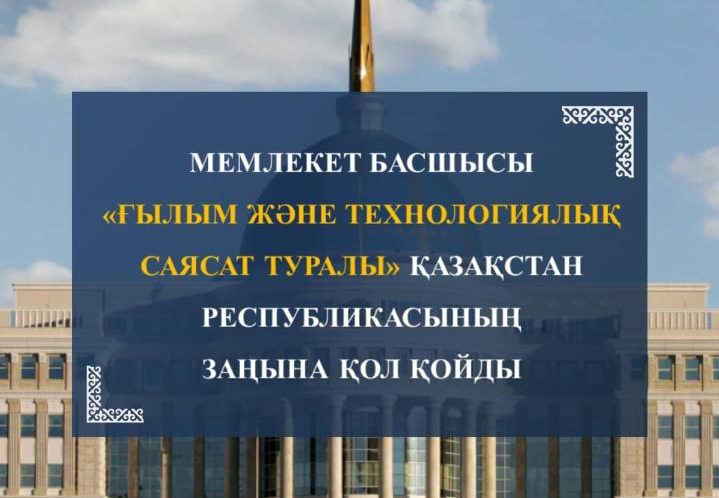This document is aimed at the development of science and the implementation of technological policy, the introduction of the results of scientific achievements to ensure the competitiveness of the country, as well as at solving strategic, professional and social issues of scientific activity.
Firstly, in order to interconnect scientific, technological and economic policies of the state, a new mechanism for assessing the validity and technological readiness (TRL) for the implementation of scientific research from idea to mass production has been introduced. TRL allows you to cover all stages of the scientific and production cycle and commercialization, providing support.
Thus, Kazakhstan’s scientific and technological policy will be aimed at reducing the innovation gap in relation to world technological leaders.
Secondly, the status of the Science Foundation as a National Agency for Technology Commercialization has been expanded. It will become a single window for programs in the field of science and technology and will support innovation infrastructure, as well as attract venture capital financing.
Thirdly, a new mechanism has been introduced for the collection, processing and analysis of scientific and technical information in order to monitor scientific achievements, the market for innovations and new technologies with the creation of a National Center for Scientific and Technical Information.
Monitoring of scientific and technical information will provide information and analytical support for the scientific process, which, of course, contributes to the stability of the development of science and innovation, as well as increases the efficiency of science management in the country, turning the scientific industry into a full-fledged segment of the digital economy.
Fourth, in order to stimulate scientists, the right to purchase preferential housing for young scientists is being introduced. Also, within the framework of the law, the Tax Code provides for state incentive measures to provide subjects of scientific and (or) scientific and technical activities with tax benefits and tax deductions for expenses on research, scientific and technical and development work. Tax deductions of 50% are provided.
Fifth, the Law improves the structure of science management. The law proposes to empower local executive bodies with competencies for the implementation of state policy in the field of science and coordination of work on research in the form of grant funding.
The new status of the National Academy of Sciences in the form of a higher scientific organization has also been defined, indicating the competencies, sources of funding and powers of the Board of Trustees, the General Meeting of Academicians, the Presidium and the Board.
In addition, the President signed the Law “On Public Procurement”, simplified the procurement procedure for scientific organizations. Thus, procurement procedures of research institutes and organizations of higher and (or) postgraduate education for the performance of scientific research and scientific work are now carried out according to the rules approved by the Ministry of Science and Higher Education in coordination with the authorized body in the field of public procurement.
